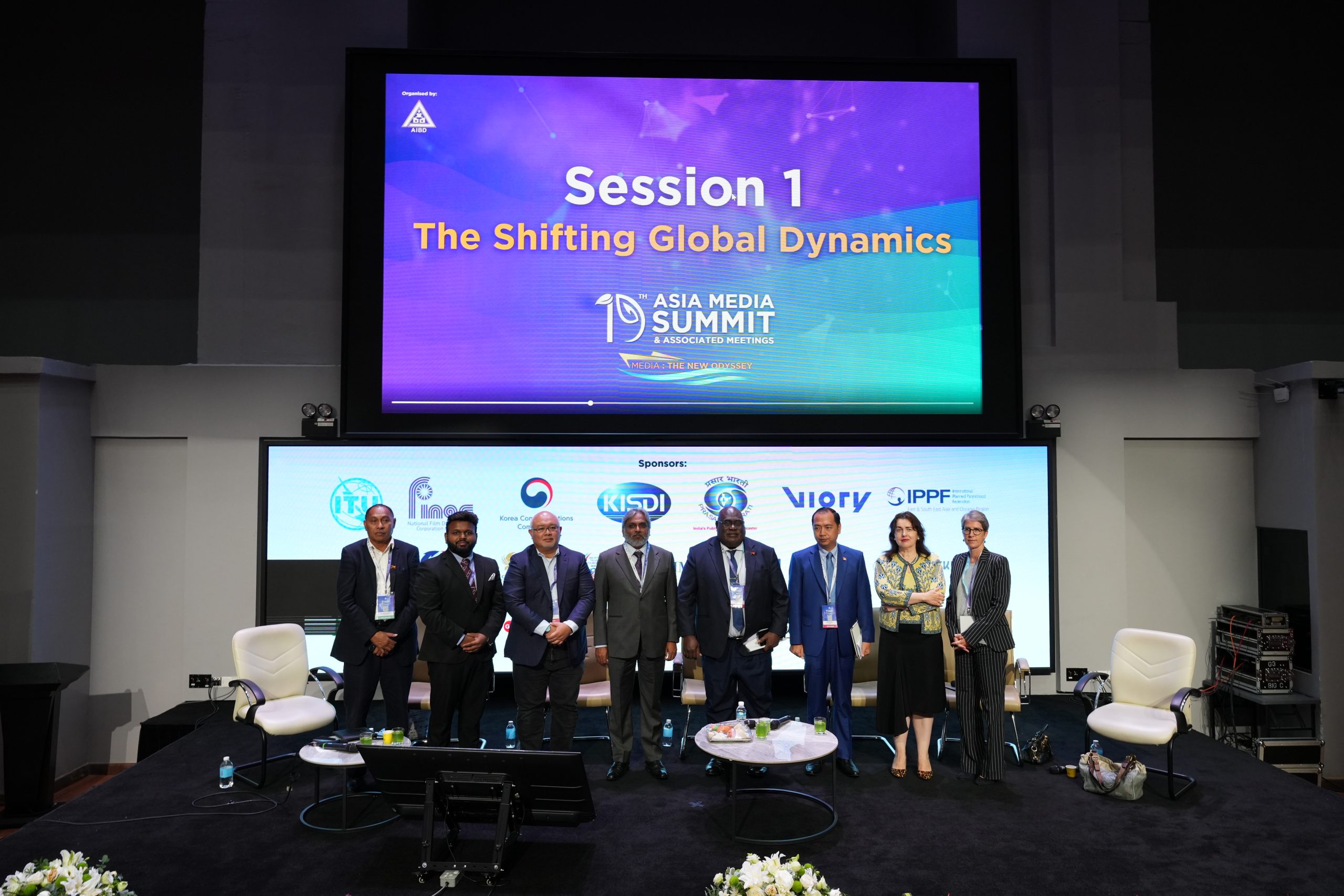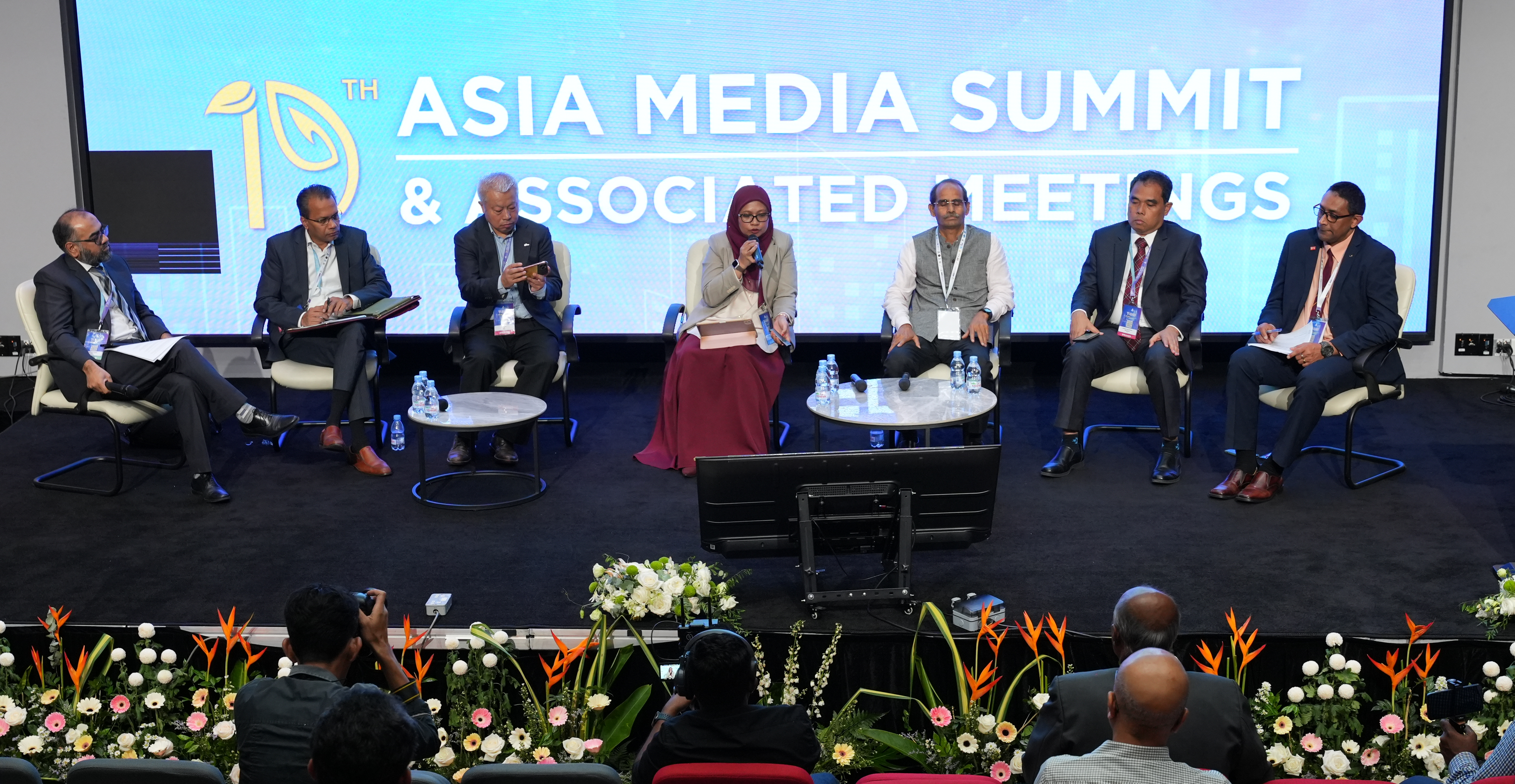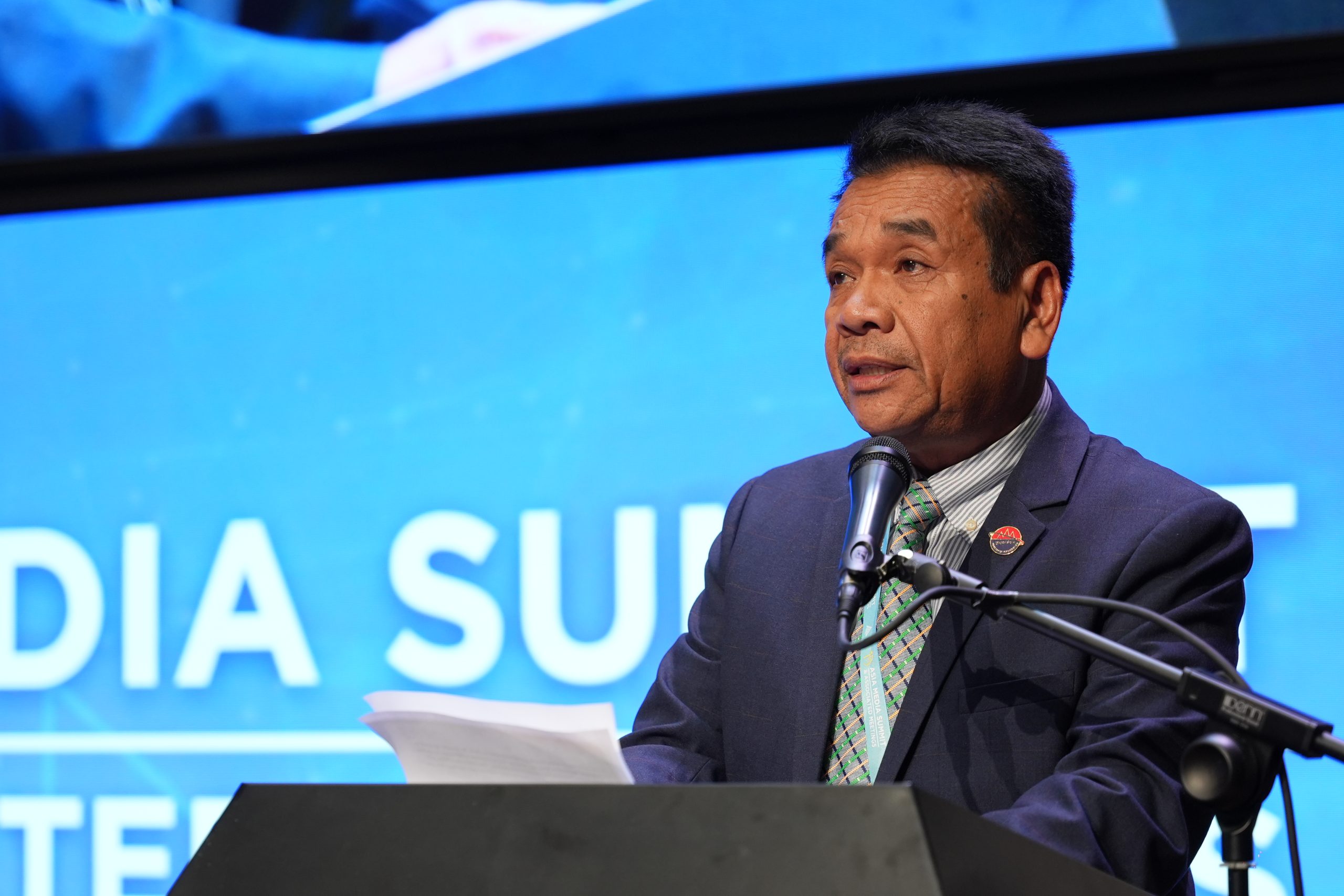Opening of AMS 2013
Some 400 local and foreign delegates from more than 50 countries and regions across the globe converged for the 10th Asia Media Summit in Manado, Indonesia. The Asia Media Summit this year celebrates ten years of service to its member countries and partners in Asia-Pacific. In Manado, its theme focuses on "Delivering on Broadcasting’s Future."
Some 400 local and foreign delegates from more than 50 countries and regions across the globe converged for the 10th Asia Media Summit in Manado, Indonesia. The Asia Media Summit this year celebrates ten years of service to its member countries and partners in Asia-Pacific. In Manado, its theme focuses on "Delivering on Broadcasting’s Future."
Ir. Tifatul Sembiring, Minister, Ministry of Communication and Information Technology (MCIT), Indonesia called on broadcast media to become part of the solution in solving the world’s problems, emphasizing the need for providing programs that provide education, enlightenment and empowerment of the people.
He said broadcast media "should be oriented towards the creation of an educated public, serving information of public importance and offering space for public participation."
Minister Sembiring delivered the keynote address during the inaugural session of the Asia Media Summit 2013 that opened on 29 May in Manado, Indonesia.
In his speech, Minister Sembiring urged broadcasters to identify specific outcomes that can contribute towards establishing a civilization that empowers and enlightens the public. He hopes the future of broadcast media "will give inspiration for humanity and world peace."
Towards this end, he urged more literacy initiatives that will enable people "to learn more how to use and utilize information and entertainment media effectively and strategically support change to improve people’s lives."
Mrs. Dra. Rosarita Niken Widiastuti, President, AIBD General Conference and President Director, Radio Republik Indonesia (RRI), Indonesia, welcomed the participants and urged broadcasters to adopt a new mentality to be successful in the changing media landscape.
That new mentality, she said, requires one who explores, experiments, takes risks and accepts creativity and innovation without abandoning good ethics.
"This new mentality enables us to serve a mixed genre audience and a diversity of quality programming, to offer our workforce more capability to deal with new technology and new behavior and to ensure media owners and partners gain more value for their investments," she said.
In today’s media landscape, Ms. Widiastuti said the worst thing to do is to do nothing and allow the status quo to prevail.
She urged participants to take advantage of the AMS that can provide a rich platform for interaction, for engagement, and for dialogue to respond to the uncertainties and opportunities that impact the industry's viability.
In a special address during the inaugural session, Prof. Hubert Gijzen, Director, Regional Science Bureau for Asia and the Pacific, UNESCO, says media must help address the big questions of our time –eradicating poverty, sustainable development and peace and security. He said this can only be pursued if media exercises freedom of expression and has access to more information.
"To ensure a peaceful, inclusive and responsive human development, we need to further strengthen the environment for an independent and pluralistic media, and ensure that the media serves the needs of society by reflecting a diversity of political views, cultures, languages and beliefs," he said.
Towards this end, he said UNESCO has adopted an Open Access Policy that makes available all of its publications, audio, video, and multimedia to users and allows them to freely read, download, save, copy, print, reuse, adapt and translate the full text of peer-reviewed, scholarly and research documents.
In his presentation, he lamented how policymakers make little distinction between different types of broadcasters, which leaves the interests of marginalized communities at the behest of their commercially powered competitors.
This reality, he said, demands priority attention. Equally important is the promotion of the concept of public service delivery through independent and pluralistic media.
He urged broadcasters to support free expression and safety of journalists in the face of increasing number of journalists killed worldwide. Over the past ten years over 600 journalists have been killed. In 2012, 121 journalists, media workers and bloggers were killed making it the deadliest year for media.
AIBD Director Yang Binyuan also spoke at the inaugural session, highlighting the contributions of the Asia Media Summit that has helped define how broadcasters should move forward and face the future.
"The future is challenging, demanding but promising for the broadcast media," he said.
He thanked all AIBD members and partners for helping AIBD in building the AMS and said he looked forward to another ten years of productive AMS.









